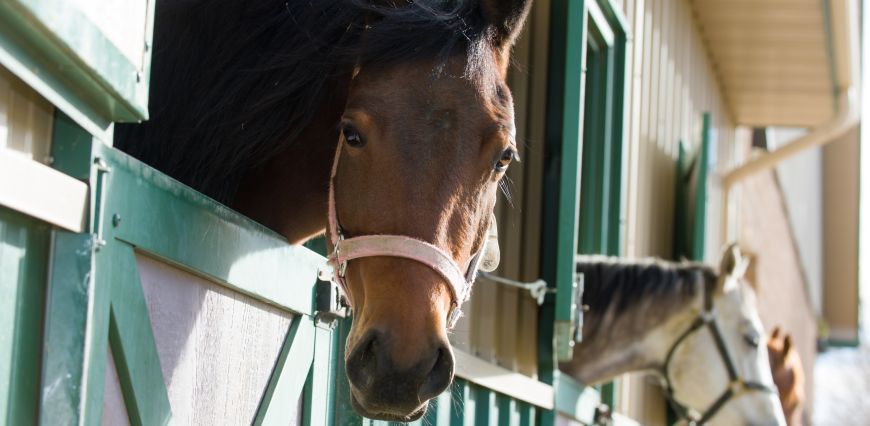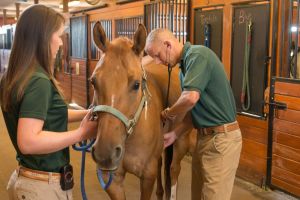
Colorado State University’s Veterinary Teaching Hospital will host two interactive online discussions this month to provide horse owners with information about identifying, treating and preventing equine colic – the leading cause of premature death in horses, and one of the most common equine veterinary emergencies.
Colic is not a disease, but a variety of signs that point to abdominal pain and gastrointestinal distress in horses. Because colic can be fatal if untreated, it’s important that horse owners understand the condition and know when and how to respond.
That’s the focus of Coping with Colic in Horses, presented by CSU equine veterinarians with extensive knowledge of the subject.
The online discussions presented by CSU are free and open to anyone interested; Internet service is needed. The presentations will be provided through the social networking platform Google+ Hangout, which functions much like a webinar, allowing participants to view and hear presentations from their personal computers and other devices – and to ask questions of the experts.

On Oct. 14, Drs. Luke Bass and Elsbeth Swain, and intern Alicia Yocom with the CSU Equine Field Service, will discuss and answer questions about how colic manifests and how to respond in the home or barn setting. To join the discussion, click here.
On Oct. 22, Drs. Diana Hassel and Eileen Hackett, with the CSU Equine Medicine and Surgery Service, will explain what occurs if a horse with colic requires treatment at a veterinary hospital, including signs that the patient requires surgery, what occurs during and immediately after, and issues to note during recovery at the hospital and at home. To join the discussion, click here.
Submit questions early by e-mailing cvmbs-socialmedia@colostate.edu, or through Twitter, Facebook, or Google+, using the hashtag #PagingDrRam.
If you have questions about this event, please e-mail cvmbs-socialmedia@colostate.edu.